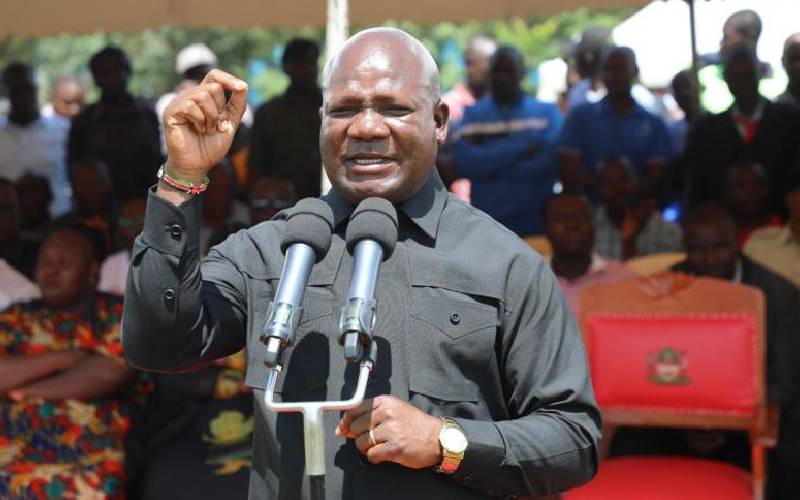The Chinese government has refuted claims it is luring counties around the world into a debt trap that will eventually jeopardise their sovereignty. China’s Foreign Affairs ministry spokesperson Lu Kang has been at pains to explain that China has no imperial ambitions. But this explanation is a spectacular miss, as the true shape and form of China’s Belt and Road Initiative unravels.
Countries in the developing world, and in particular Africa, are no strangers to exploitation. After decades of colonial rule under major Western powers, the continent was left with a legacy of harsh, imperialist rule that set it back years in modernisation.
The experience of Africa under colonial rule was that of exploitation and subjugation, and of course, the severest form of racism and untold atrocities. China has refuted claims that it plans to colonise Africa, but evidence points to the contrary. The behavior of China towards countries that have fallen into its debt trap tells a different story. The debt-trap diplomacy in which China angles to gain influence overseas by bankrupting its partners and bending them to its will is not different from the cunning methods used by European colonialists in their advances towards Africa.
The colonialists duped African chiefs into contracts that they used to justify occupation of African land. To better get this perspective, Sri Lanka was so indebted to China after approving a string of ambitious projects that it was forced to lease the port in Hambantota to a State-run Chinese company for 99 years.
British occupation
This, in many ways, mirrors how, for instance, Britain colonised African states. Initially, Britain came to Africa through trading companies and “explorers.” The British government gave an exclusive charter to the Imperial British East Africa Company (IBEACO), which became the precursor to British occupation in East Africa. IBEACO sent Captain Frederick Lugard to East Africa through Mombasa and Zanzibar, where he signed a series of treaties with African leaders, including one with Laibon Lenana that gave away 9 million acres of Kenyan land to IBEACO. This is the same modus operandi that Captain Luggard used in Nigeria and Uganda.
A similar approach was used by Germany when the German East Africa Company (GEACO) sent Carl Peters to Tanzania, where tribal leaders were enticed into signing blank treaties, effectively making their people subjects of the German Kaiser. China has not veered off the European colonial script. Just like the British used IBEACO and the Germans used GEACO, China is using its companies to enter into fraudulent “Public Private Partnerships” that end up in debt relationships between African countries and Chinese companies, guaranteed by the government of China. When these relationships become difficult, the Chinese government takes over “the relationships” just like the British took over from IBEACO.
African Nations
Earlier this month, President Uhuru Kenyatta joined other African leaders in China, where the latter announced a further $60 billion in another round of debt financing meant for African nations. It has been reported that Kenya is expected to receive more than Sh230 billion in loans and grants to execute President Kenyatta’s Big Four agenda, as an output of the 2018 FOCAC Summit held in Beijing earlier this month.
This will be executed through Public Private Partnerships. Eventually, going by the precedence of other white elephant projects funded by Chinese debt in Kenya, the Chinese government will take over. Other than economic exploitation, colonialism comes with other undesirable social aspects such as racism. After European powers entrenched their rule over Africans, an institutionalised system of racism and abuse became the tool of governance. Laws were made to protect European settlers and colonial administrators, who, in turn, treated African natives with utter cruelty.
A few days ago, it was reported that Chinese supervisors were physically abusing Kenyan subordinates working at SGR installations; allegations that the Kenyan Government and Chinese officials denied, only for a Chinese Company official to be caught on tape throwing racial slur at the President of Kenya. Kenyans and Africans should take this as a warning for things to come when China finally comes to collect its debt.
While China’s relationships with African leaders are decorated with rhetoric and semantics such as “mutual respect for territorial integrity and sovereignty” it becomes a different ballgame when a country is finally caught up in the debt web. Else, why are Chinese officials taking over strategic State installations in indebted nations such as Zambia, Pakistan, Sri Lanka and Venezuela? It is time Kenyans also knew that the debt that financed the Standard Gauge Railway was secured using the port of Mombasa. It will not be difficult for China to replicate what they did in Sri Lanka.
Mr Karugu is a strategy and analytics consultant based in Nairobi. [email protected]
Stay informed. Subscribe to our newsletter
 The Standard Group Plc is a
multi-media organization with investments in media platforms spanning newspaper
print operations, television, radio broadcasting, digital and online services. The
Standard Group is recognized as a leading multi-media house in Kenya with a key
influence in matters of national and international interest.
The Standard Group Plc is a
multi-media organization with investments in media platforms spanning newspaper
print operations, television, radio broadcasting, digital and online services. The
Standard Group is recognized as a leading multi-media house in Kenya with a key
influence in matters of national and international interest.
 The Standard Group Plc is a
multi-media organization with investments in media platforms spanning newspaper
print operations, television, radio broadcasting, digital and online services. The
Standard Group is recognized as a leading multi-media house in Kenya with a key
influence in matters of national and international interest.
The Standard Group Plc is a
multi-media organization with investments in media platforms spanning newspaper
print operations, television, radio broadcasting, digital and online services. The
Standard Group is recognized as a leading multi-media house in Kenya with a key
influence in matters of national and international interest.








